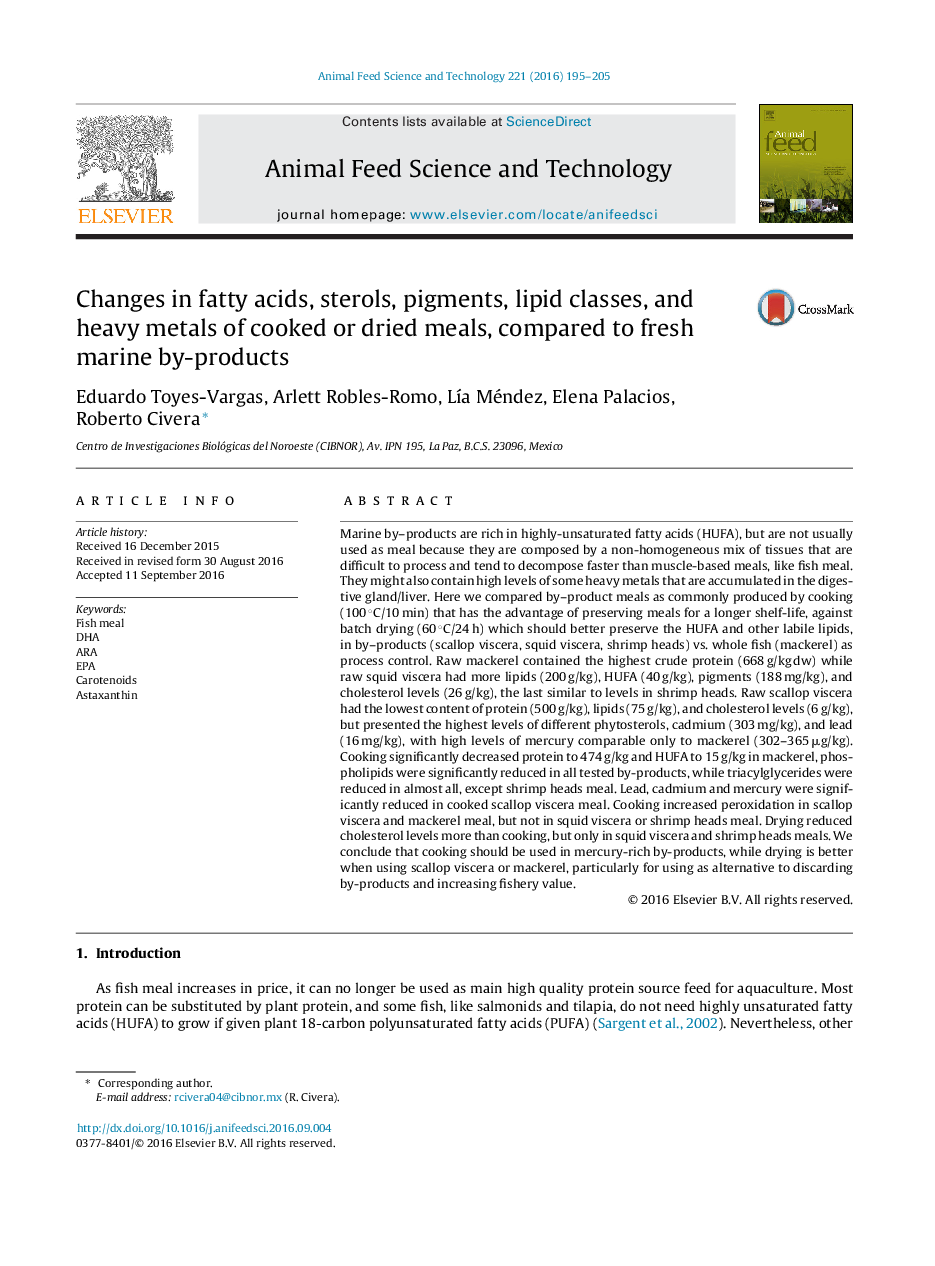| Article ID | Journal | Published Year | Pages | File Type |
|---|---|---|---|---|
| 6481854 | Animal Feed Science and Technology | 2016 | 11 Pages |
â¢The processing method affected the chemical composition of marine by-product meals.â¢Drying preserved better the chemical composition of the raw materials.â¢Cooking decreased lipids, particularly phospholipids and triglycerides in all meals.â¢Squid and scallop viscera meals contained more HUFA and pigments than mackerel meal.
Marine by-products are rich in highly-unsaturated fatty acids (HUFA), but are not usually used as meal because they are composed by a non-homogeneous mix of tissues that are difficult to process and tend to decompose faster than muscle-based meals, like fish meal. They might also contain high levels of some heavy metals that are accumulated in the digestive gland/liver. Here we compared by-product meals as commonly produced by cooking (100 °C/10 min) that has the advantage of preserving meals for a longer shelf-life, against batch drying (60 °C/24 h) which should better preserve the HUFA and other labile lipids, in by-products (scallop viscera, squid viscera, shrimp heads) vs. whole fish (mackerel) as process control. Raw mackerel contained the highest crude protein (668 g/kg dw) while raw squid viscera had more lipids (200 g/kg), HUFA (40 g/kg), pigments (188 mg/kg), and cholesterol levels (26 g/kg), the last similar to levels in shrimp heads. Raw scallop viscera had the lowest content of protein (500 g/kg), lipids (75 g/kg), and cholesterol levels (6 g/kg), but presented the highest levels of different phytosterols, cadmium (303 mg/kg), and lead (16 mg/kg), with high levels of mercury comparable only to mackerel (302-365 μg/kg). Cooking significantly decreased protein to 474 g/kg and HUFA to 15 g/kg in mackerel, phospholipids were significantly reduced in all tested by-products, while triacylglycerides were reduced in almost all, except shrimp heads meal. Lead, cadmium and mercury were significantly reduced in cooked scallop viscera meal. Cooking increased peroxidation in scallop viscera and mackerel meal, but not in squid viscera or shrimp heads meal. Drying reduced cholesterol levels more than cooking, but only in squid viscera and shrimp heads meals. We conclude that cooking should be used in mercury-rich by-products, while drying is better when using scallop viscera or mackerel, particularly for using as alternative to discarding by-products and increasing fishery value.
